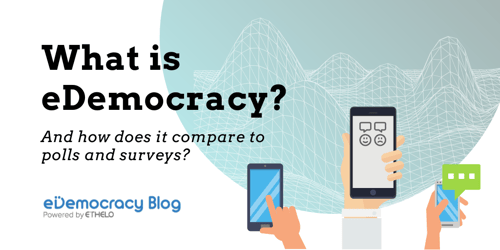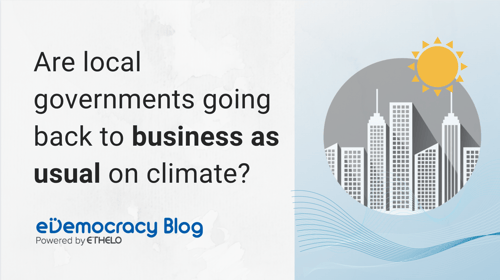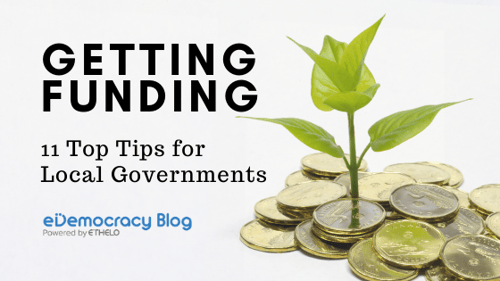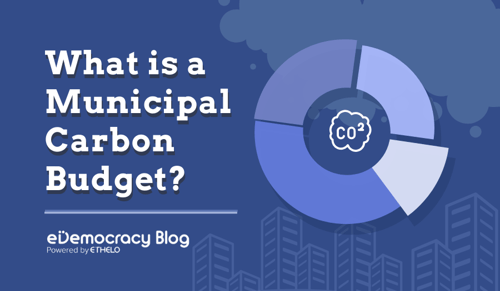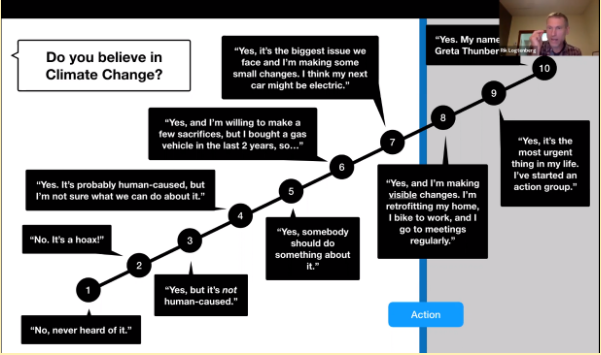
Contrary to what’s portrayed in most media, the solutions to the climate crisis are not going to come from international coalitions creating wide-ranging policy. Instead, true action and progress will happen from the bottom up when citizens work in cooperation with local government.
The Climate Caucus is working to inspire that sense of local empowerment across Canada. The group is a non-partisan network of Canadian elected officials who are working together to create policies that will hold global warming to 1.5°C, in line with the Intergovernmental Panel on Climate Change (IPCC) target.
The group’s founder, Rik Logtenberg, recently joined us for an eDemocracy webinar to share the story of how it’s working and how others can join the fight to mitigate and adapt to a changing climate.
Logtenberg was elected to the council of Nelson, British Columbia, in 2017 after working in climate activism for more than a decade. During that time, he came to realize that real change comes about by creating social conditions for action.
“The Climate Caucus is about helping to spread the word that this crisis is real and using our position as local government leaders to model the behavior we want to see in people and encourage our community to recognize the reality of climate change,” Logtenberg said.
Logtenberg said that, for most people, climate change is not a cut and dry issue that they completely believe or completely disbelieve. Rather, they take varying degrees of action based on the level of threat they perceive and the actions they see others taking.
During the webinar, Logtenberg outlined three ways that local governments can inspire their residents to change their behavior.
1. Declare a climate emergency or something similar to let the public know that climate change is coming and that it’s a real threat they need to take seriously.
2. Form a climate action committee to serve as liaisons between government and citizens. The committee can inform the government about the public’s feelings and help build consensus for public policy.
3. Develop an adaptation plan that includes widening storm drains, developing secondary water sources, and providing food security.
“We need people to be making visible changes, then other people use them as a reference,” Logtenberg said. “When you see it, you’re more likely to make that change yourself. If enough people do this, you pass a tipping point and see a city becoming a leader in climate action.”
Like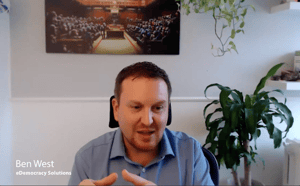 Logtenberg, eDemocracy Solutions Executive Director Ben West has spent decades as a climate activist and organizer. During that time, he’s come to realize the importance of consensus in decision making, particularly in divisive issues like climate change.
Logtenberg, eDemocracy Solutions Executive Director Ben West has spent decades as a climate activist and organizer. During that time, he’s come to realize the importance of consensus in decision making, particularly in divisive issues like climate change.
West sees Ethelo's eDemocracy Carbon Budget as the perfect tool for bringing about the behavior change Logtenberg describes as essential for meeting IPCC targets.
The fundamental ideas behind Ethelo are about finding that common ground and engaging the community in a way to find the broadest support,” West said. “We can’t get all the way there just by recycling; we need to involve the community to the extent that they see their connection to the issue and the role they play in solving it.”
You can view the full webinar recording with Logtenberg and West here.

